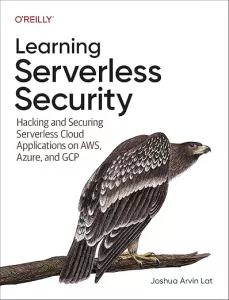Last updated on January 19, 2026
Microsoft Copilot for Security Cheat Sheet
- An AI-powered cybersecurity assistant that helps security teams investigate, respond to threats, and manage risks more efficiently.
- Built on Microsoft’s security stack and large language models, it enhances analyst workflows with natural language understanding.
- Reduces time to resolution by summarizing incidents, generating KQL/PowerShell scripts, and providing guided response actions.
- Delivers real-time threat analysis and contextual insights via embedded Copilot experiences or standalone chat.
- Integrates with Defender XDR, Sentinel, Intune, Entra, Purview, Defender for Cloud, and third‑party plugins to provide unified analysis and response.
Key Features
- Incident summarization & triage
Automatically generates actionable summaries of alerts and incidents by combining internal telemetry with Microsoft threat intelligence. - Natural‑language threat hunting
Analysts can write plain‑English prompts; Security Copilot generates or refines KQL queries in Microsoft Sentinel to support investigation workflows. - Script reverse‑engineering & guidance
Analyzes PowerShell, Bash, or batch scripts in incidents and explains potential outcomes or malicious behavior. - Embeddable & standalone experiences
Copilot can be used within security tools (embedded) or via a standalone chat-like portal, depending on role and context. - Guided response automation
Produces remediation recommendations or scripts to automate responses (e.g. via Logic Apps or PowerShell). - Agent-based automation
It supports agents, which are automated and adaptive AI workflows that reduce repetitive tasks while analysts remain in control. - Timeline View for Investigations: Generates a visual, interactive timeline of events for a specific entity (like a user or device). This consolidates disparate alerts and logs from across integrated services into a single chronological story, making it easier to understand the sequence and scope of an attack.
Use Cases
- Summarize and triage high-volume incidents across Microsoft Defender and Sentinel
- Investigate suspicious scripts or automation artifacts during incident response
- Generate, refine, or optimize KQL hunting queries
- Produce remediation guidance and playbook scripts (e.g. PowerShell, Logic Apps)
- Identify lateral movement and affected asset relationships
- Create executive summaries or incident reports
- Simulate attack scenarios for blue team training
- Ask Copilot policy‑related prompts for Entra, Intune, and Purview configurations
Integrations with other Azure services
| Azure Service | Integration Capabilities |
| Microsoft Defender XDR | Analyze incidents across identities, endpoints, email, and cloud threats |
| Microsoft Sentinel | Uses Copilot to query logs, create detections, and execute threat‑hunting logic |
| Microsoft Intune | Assess device health and receive configuration recommendations |
| Microsoft Entra ID | Investigate identity-based threats and policy violations |
| Microsoft Defender Threat Intelligence (MDTI) | Retrieve the latest global threat actor profiles, malware analyses, and IOCs for analysis. |
| Microsoft Purview |
Summarize alerts from DLP, insider risk, compliance, and eDiscovery workflows. |
| Microsoft Priva (Part of Purview) | Assist with data privacy investigations and subject rights requests. |
| Microsoft Defender for Cloud & External Attack Surface Management | Identify cloud risks and external vulnerabilities. |
| Third-party plugins(e.g., Splunk, ServiceNow, Palo Alto Cortex XSIAM, Zscaler) | Integrate external threat context and data via Copilot plugins. |
Some important terminologies
- Promptbook: Collections of tailored prompts for common security workflows like triage, hunting, or reporting.
- Plugin or Connector: Extends Copilot with data from Microsoft or third‑party security tools (e.g., Sentinel, external threat intel)
- Security Compute Unit (SCU): A billing and capacity unit; Copilot usage is managed via provisioned or overage SCUs.
- Agent: Automated, adaptive AI workloads that perform high-volume security tasks under analyst supervision—improving efficiency while preserving human control.
- Prompting: Natural language input given to Security Copilot to generate KQL queries, remediation instructions, or investigative summaries.
- Workspace: A container within Microsoft Security Copilot that defines access boundaries, data sources, and plugin configurations.
- Grounding: The process by which Copilot’s responses are anchored to your organization’s specific security data (from Defender, Sentinel, etc.) and official Microsoft threat intelligence. This ensures answers are relevant and actionable for your environment, reducing generic or hallucinated information.
Pricing
Consumption-Based SCU Billing
- Security Compute Units (SCUs) drive all Security Copilot usage. You pay for both the standalone portal and embedded experiences via SCUs. Pricing is standard across regions and delivery modes.
- Provisioned SCU Capacity: A committed, fixed capacity billed on an annual subscription. This is the most cost-effective model for predictable, ongoing usage.
- Pay-As-You-Go SCUs: Flexible consumption billed monthly for variable or sporadic usage, calculated per hour of active use. Contact Microsoft sales for specific region pricing, as the previously cited public rates are estimates and subject to change.
Usage Monitoring & Optimization
- Use the Security Copilot dashboard to monitor provisioned vs. overage SCU usage, plugins invoked, and session initiators over the last 90 days.
- Billing is calculated in hourly blocks for provisioned capacity (rounded up per hour). Overage usage is billed precisely, typically up to one decimal place.
Microsoft Copilot for Security Cheat Sheet Resources:
https://learn.microsoft.com/en-us/copilot/security/microsoft-security-copilot
https://learn.microsoft.com/en-us/copilot/security/get-started-security-copilot
https://azure.microsoft.com/en-us/pricing/details/microsoft-security-copilot/

















